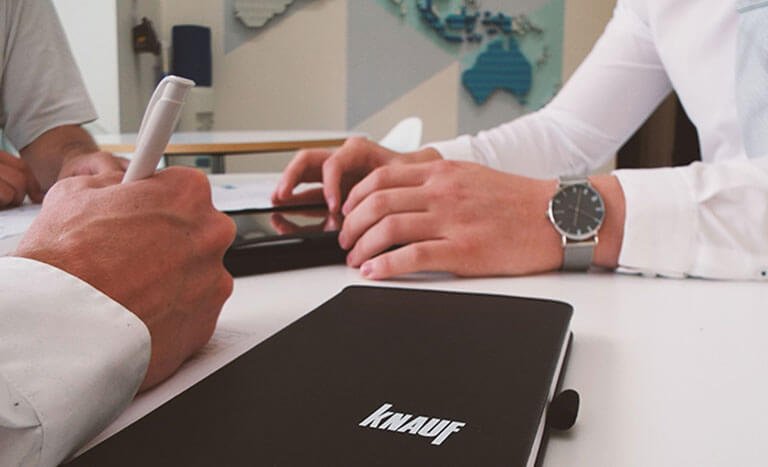A key commitment for Knauf is to reduce the environmental impact of product packaging without compromising quality or ease of use. The goal is always to be ahead of legislative requirements.
The Plastic Packaging Tax, which came into effect in April 2022, provided a welcome stimulus to the development of alternative materials. The Product Management and Procurement teams at Knauf uses this requirement to encourage suppliers to develop packaging which exceeds this minimum standard.
It's a great example of how legislation can drive innovation, provided the supply chain responds with enthusiasm and commitment.

Taxes such as the Plastic Packaging Tax or the forthcoming Extended Producer Responsibility Legislation themselves cannot be expected to drive change in isolation. Instead, they can serve as a stimulant, encouraging discussion across the supply chain, which will need to work collectively to find solutions.
For Hannah Wrigley-Stevens, Buyer at Knauf, it was challenging at first to find suppliers in the UK willing to make the switch into recycled content pallet hoods and stretch wrap. “The switch was slower to start with, however there is now a lot of regulations and reporting required especially to HMRC for plastics used within a business. The increase in details, is therefore pushing suppliers to want to make the change and improve their sustainability offering.”
“Around six months ago, we were the ones driving the change, going to our suppliers saying that we wanted a more recycled content solution. Many of our suppliers weren’t necessarily pushing for the change, as their margins would be less, and they were happy with the status-quo. However, now, many are making the moves needed to ensure that the switch can happen.”
This was something that Becky Newell, Product Manager at Knauf also found.
“When we started the journey of changing our product packaging over 2 years ago, it was quite hard to find companies willing to be involved with the project, but increasing customer demand for change in the industry combined with more encompassing packaging taxes seems to be driving a positive change.”
Passionate about making Knauf’s packaging more environmentally friendly and wanting to understand how best to bring this to the whole supply chain, Becky recently completed a Knauf sponsored Business Sustainability Management course at the University of Cambridge Institute for Sustainability Leadership.
Speaking about the course, Becky said. “The course was very informative and helpful; I came away with more knowledge and ideas, and I’m really pleased that Knauf supported me in getting this qualification. It shows that as a company, they want to improve and become as sustainable as possible.”
For Knauf, merely meeting a minimum requirement isn’t enough, some packaging contains 50-80% recycled content, and the team is always looking to push the boundaries in terms of what is possible.
Of course, it is important to ensure that the product quality does not suffer while striving to ensure better environmental performance. It’s an ongoing process that will involve trade-offs and compromise in regard to just how much and how fast the packaging can change. For example, some of the lids on product tubs currently remain as virgin material in order to retain rigidity.
Becky elaborates. “We’re trying not to change the packaging too much from what is on the shelf, and we’re also trying to avoid changing the size of the tubs - which is often geared toward the optimal amount of product in the tub.”
“Sometimes there are specific requirements for the product: for example, ProRoll needs a specific sized rectangular tub to work with standard rollers, and finding a like-for-like alternative has been more difficult. Additionally, a lot of our products may react with certain materials, so we need the combination to work.”
“Once we have found a material, we will do tests for compatibility with the product then the transportation tests. When we’ve signed off on the tub, we don’t want to waste packaging, so we will use up our stock of existing packaging before doing the switch. So sometimes there may be a time lag.”
A combined effort across the entire supply chain is needed to ensure that the environmental impact of packaging is reduced.
